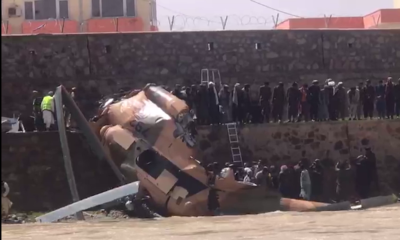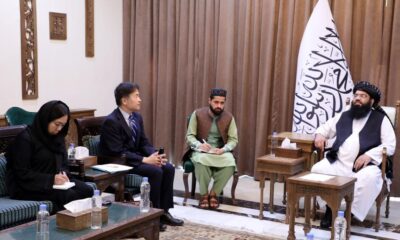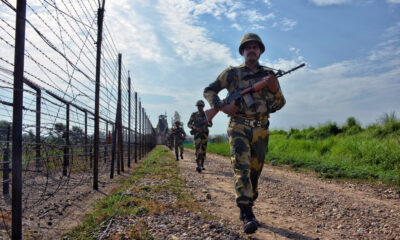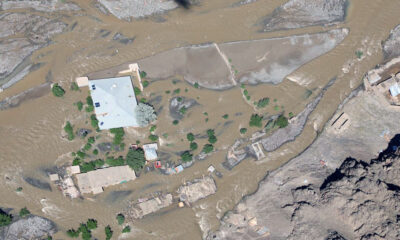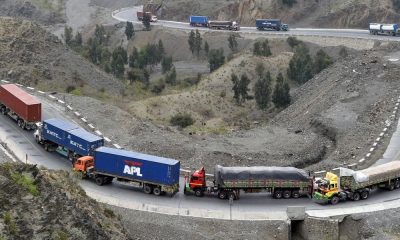Latest News
ICRC director ‘livid’ over dire ‘man-made’ situation in Afghanistan
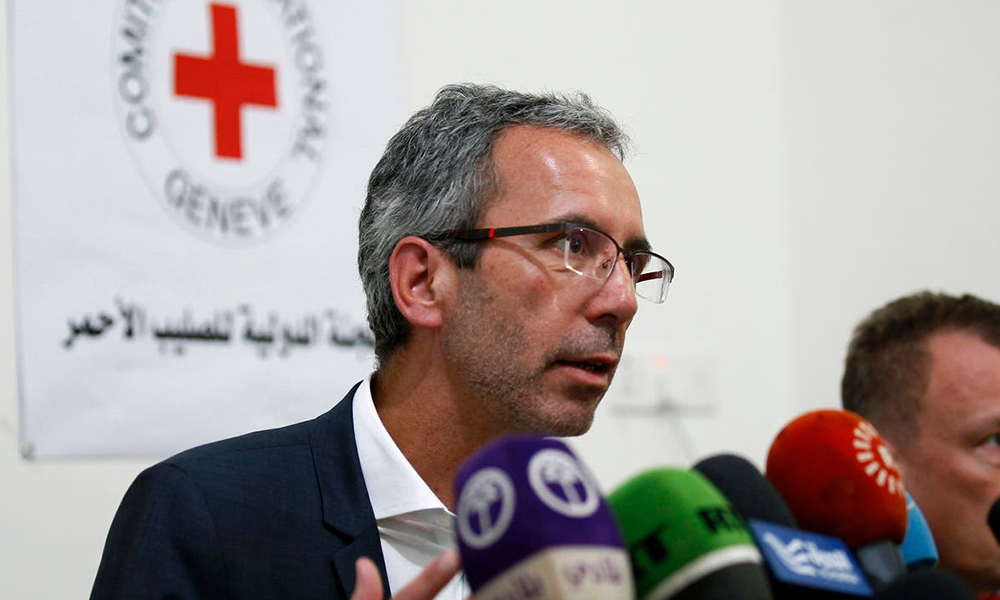
Dominik Stillhart, the director of operations for the International Committee of the Red Cross expressed his anger on Monday at the world for plunging Afghanistan into the grips of starvation on the back of economic sanctions.
In a statement released after a six-day visit to the country, Stillhart said: “I am livid. Pictures viewed from afar of bone-thin children rightly elicit gasps of horror. When you’re standing in the pediatric ward in Kandahar’s largest hospital, looking into the empty eyes of hungry children and the anguished faces of desperate parents, the situation is absolutely infuriating.”
He said “it’s so infuriating because this suffering is man-made.”
Economic sanctions meant to punish those in power in Kabul are instead freezing millions of people across Afghanistan out of the basics they need to survive, he said adding that “the international community is turning its back as the country teeters on the precipice of man-made catastrophe”.
He stated that sanctions on banking services are sending the economy into free-fall and holding up bilateral aid, and that government staff who haven’t been paid in five months walk up to two hours to work instead of taking public transport. He said they have no money to buy food; their children go hungry, get dangerously thin, and then die.
During his trip to Afghanistan, Stillhart visited the paediatric intensive care unit at Mirwais Regional Hospital in Kandahar and painted an extremely bleak picture.
He said the number of children suffering from malnutrition, pneumonia and dehydration has more than doubled from mid-August to September.
Stillhart said that on Monday, the ICRC began supporting 18 regional and provincial hospitals and the 5,100 staff who work in them to help prevent the total collapse of the public health system in Afghanistan.
He said this support, slated to last six months, includes funding for running costs and medical supplies and will ensure the continuity of nearly half a million medical consultations per month.
However, this was not enough, he stated.
“Drought, failed harvests, and the economic collapse are all driving the increase in malnutrition. Rising food costs are pushing proteins and other staples out of reach,” he said adding that as the harsh winter sets in with temperatures well below freezing, the suffering will be immense as people lack the cash to heat their homes.
Stillhart called for countries to engage with Afghanistan.
“This is the only way to prevent a total collapse of essential services like health care and education. Political considerations should not interfere with humanitarian action. A political solution must be found to avoid irreparable humanitarian consequences,” he said.
He also appealed to foreign donors that have stopped helping Afghanistan to work through entities such as the ICRC so as to stop denying Afghans life-saving assistance.
Stillhart said while everyone knows it will be a tragic winter for Afghans, the ICRC will step up its response to help meet the most urgent humanitarian needs.
But, he said, this assistance is only part of the solution. “The existing and projected needs are beyond any humanitarian organization’s capacity to deal with or solve.”
In his appeal for the international community to step up its efforts to find a solution to the crisis, he said the desperation among Afghans can be seen in the huge crowds lining up in front of banks at 5 am in the hope that they can withdraw a little bit of cash – and in
“the empty eyes of hungry children” – which he said is something one will not soon forget.
“It makes my plea to the international community even more urgent: that it rapidly finds creative solutions to save millions of Afghans from deprivation and despair. Ultimately, this is in everybody’s interest as it will help prevent Afghanistan from slipping back into conflict and violence, and help give Afghans more means to remain in their country.”
Latest News
Ministry of Defense confirms one dead, 12 injured in chopper crash in Ghor
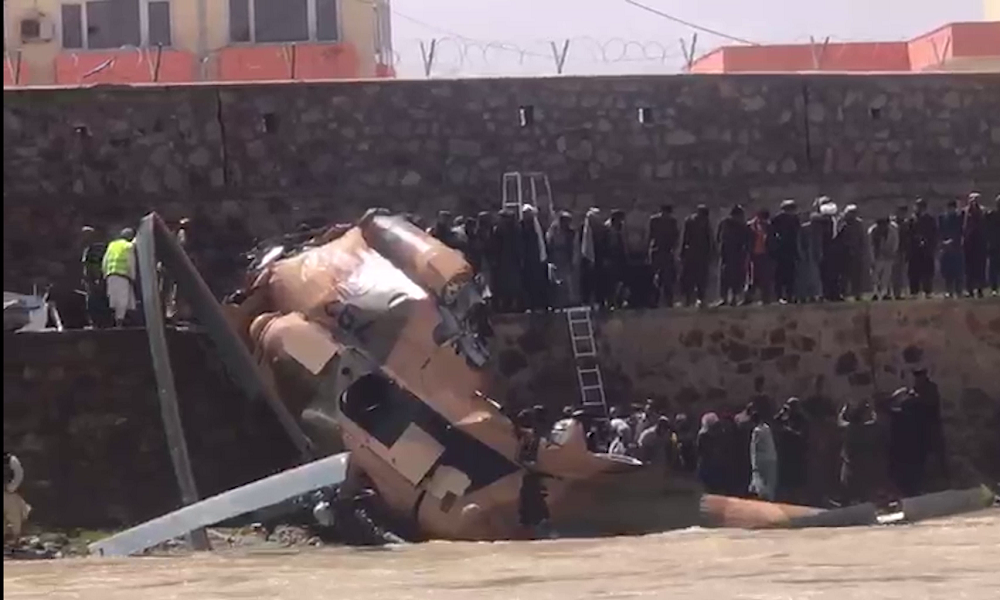
Afghanistan’s Ministry of Defense confirmed Wednesday that one person was killed and 12 were injured when a helicopter crashed in Firozkoh, the capital of Ghor province.
Enayatullah Khwarazmi, the spokesman of the Ministry of Defense, said on X that on Wednesday morning, an Air Force Mi-17 helicopter, which was sent to Ghor province, experienced technical problems and crashed into a wall during an emergency landing.
In footage published by Afghan media, the wreckage of a helicopter can be seen lying in a fast-flowing river, with crowds of people gathered around it.
The spokesman of the Ministry of Defense said the helicopter had been sent to Firozkoh to retrieve bodies of car crash victims.
The spokesman said a car plunged into the Harirod River a few days ago, resulting in the death of a few people.
Latest News
IEA’s political deputy meets with Japanese ambassador
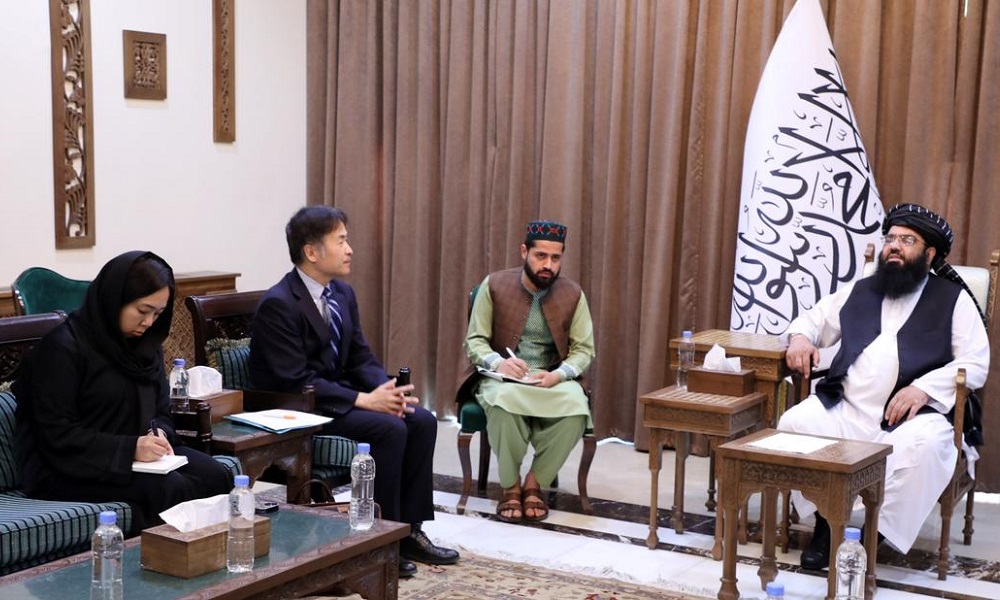
Takeyoshi Kuramaya, Japan’s ambassador to Afghanistan, said in a meeting with Mawlavi Abdul Kabir, the political deputy prime minister, that the lack of diplomatic presence of Western countries in Afghanistan has caused them to be unaware of the positive developments in the country.
According to him, the international community should have direct contact with the Islamic Emirate.
Kuramaya also said Japan is committed to cooperating with Afghans in dealing with natural disasters, treating drug addicts and finding alternative crops for former poppy farmers.
On the other hand, Kabir said at this meeting that due to the support of the people, the Islamic Emirate has been able to ensure national peace, start big projects and make many other improvements.
The political deputy added that the Islamic Emirate is trying to solve people’s problems and wants positive interactions and broad relations with the world.
Latest News
US think tank calls for revised counterterrorism strategy amid growing concerns
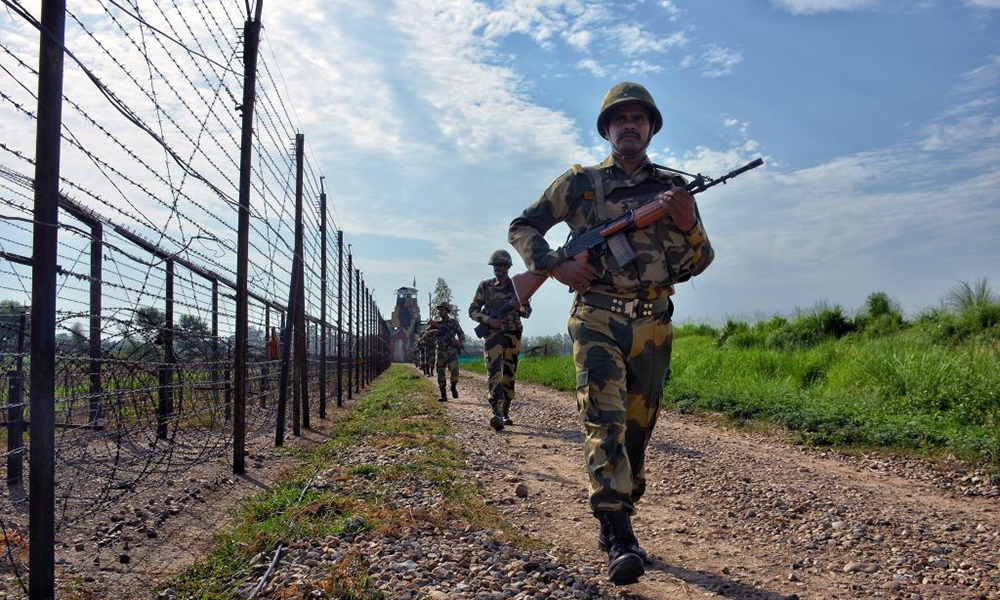
The United States Institute of Peace (USIP) on Tuesday issued a report by the Senior Study Group on Counterterrorism in Afghanistan and Pakistan and highlighted the urgent need to recalibrate the US counterterrorism strategy amid growing strategic competition with China and the ongoing tensions between India and Pakistan.
The USIP report argues that counterterrorism should not be perceived as a distraction from strategic competition but rather as a crucial component in protecting the strategic agenda.
Terrorist groups in Afghanistan and Pakistan still possess the intent and growing capability to target the US and its interests, the report noted, adding that a successful terrorist attack would not only result in tragic loss of lives but also divert resources and attention from strategic competition, undermining America’s credibility and alliances.
In addition, the report stated terrorist attacks originating from the region could spark dangerous regional crises, particularly between India and Pakistan, both nuclear-armed states.
It also stated that the US withdrawal from Afghanistan has emboldened terrorist groups, providing them with opportunities to regroup and collaborate.
ISIS-K (Daesh), for instance, presents a growing threat with a reach beyond the immediate region, while the Tehreek-e-Taliban Pakistan (TTP) has re-emerged as a significant regional security threat, the report read.
The USIP study group meanwhile suggested the Islamic Emirate need to be pressurized “to mitigate terrorist threats while maintaining communication channels for counterterrorism exchanges rather than adopting a cooperative approach with open-ended incentives or a pressure campaign that isolates the Taliban (IEA) entirely.”
The report also suggests increasing military and intelligence resources dedicated to counterterrorism in Afghanistan and Pakistan. This includes improving intelligence, surveillance, and reconnaissance (ISR) capabilities and expanding the US Department of State’s Rewards for Justice program.
The report also emphasizes the need for greater transparency in legal authorities for counterterrorism operations, ensuring actions are justified and minimizing civilian harm. This involves targeting terrorist groups planning attacks against the US and employing cyber operations to disrupt their communications.
Another suggestion was the need for enhanced counterterrorism-specific security assistance and intelligence to Pakistan.
This assistance aims to “reduce the TTP’s threat as well as to obtain Pakistani assistance on top US counterterrorism concerns, secure long-term airspace access for operations in Afghanistan, and leverage reliable access in Pakistan in the event of a terrorist attack contingency.”
The report also highlights the importance of improving preparedness for terrorist attacks in the US homeland and abroad, especially in South Asia. This includes enhancing intelligence collection and analysis, providing travel warnings, and securing emergency military operations bases in Central Asia and Pakistan.
-
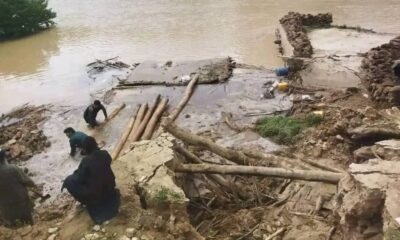
 Latest News5 days ago
Latest News5 days agoHundreds killed and injured in floods in four Afghan provinces
-

 World5 days ago
World5 days agoKuwait’s Emir dissolves parliament, suspends some constitution articles
-

 World5 days ago
World5 days agoUN General Assembly backs Palestinian bid for membership
-

 Sport5 days ago
Sport5 days agoSorkh Poshan Khafi and Sarsabz Yashlar win in ACL matches
-
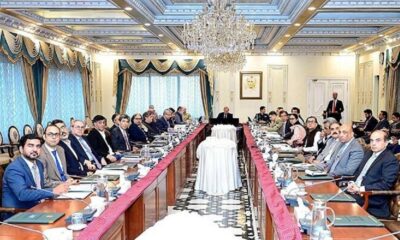
 Business4 days ago
Business4 days agoPakistan: Consultations underway on preferential trade agreement with Afghanistan
-
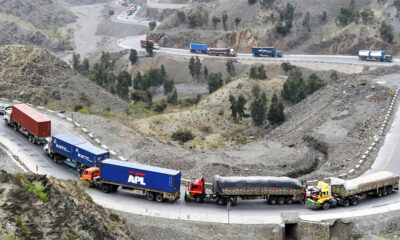
 Business4 days ago
Business4 days agoAfghanistan, Pakistan agree on new travel mechanism for truckers
-

 Business3 days ago
Business3 days agoAfghanistan can become important industrial center in region: Hanafi
-

 Sport4 days ago
Sport4 days agoKolkata down Mumbai to confirm IPL play-off berth


